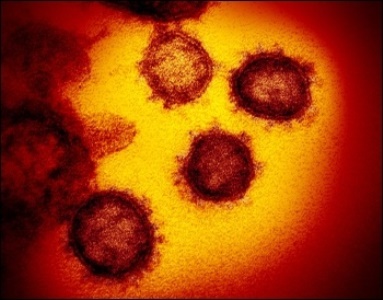
Governments around the world failed to protect people from Covid-19. Now they are desperately looking to vaccine development. Mass vaccination seems the best way to end the nightmare of further waves of infection, repeated lockdowns, and continuing blocks on many normal activities.
Vaccines have been responsible for tremendous advances. Polio, common in Britain until the 1950s, has finally been eradicated throughout the world. But there has never been a vaccine against a coronovirus.
When SARS (a coronovirus similar to Covid-19) spread rapidly in 2003, vaccine research pushed ahead. But after that pandemic eased, prospects for a profitable vaccine faded. Pharmaceutical corporations cut their research. Had they continued, a vaccine for Covid-19 might now be closer.
Initial results of a Russian vaccine, Sputnik V, were announced last month. It is being given to medical staff, although so far the results on only 76 healthy people have been published. In China, a vaccine has been given to soldiers. Not to be outdone, Trump wants to announce a US vaccine before November’s election. Operation Warp Speed is doling out billions of taxpayers’ dollars to pharmaceutical corporations to try and get there.
One US company, Inovio, has grown from a stock market valuation of $500 million at the start of the year to $3 billion. It has never produced a successful vaccine, but claims to be able to do so.
However, Inovio is now in a legal battle with another company VGX. Inovio claims VGX is denying it technology needed to develop its vaccine. VGX has counterclaimed that Inovio is stealing trade secrets. “Even if it’s successful in developing a vaccine,” says stock market analyst Vince Martin, “it may lose potential profits by getting to approval later than bulls hoped – and later than faster rivals.” (Investor Place 10 September)
Testing
Meanwhile, Chinese pharmaceutical company CanSino and Canada’s National Research Council (NRC) joint project was delayed. CanSino held up shipments of trial supplies. This followed the arrest of Huawei’s chief finance officer in Canada after pressure from the US government. NRC is now collaborating with Russian company Petrovax Pharma.
No vaccines have yet gone through full trials to test effective infection prevention without significant side-effects. The Oxford University/AstraZeneca trial was paused for a week after one of the 18,000 people who have had the vaccine so far reportedly developed transverse myelitis. About 300 people develop this in the UK each year.
Inadequate safety testing of vaccines could damage public support for vaccination, not only against Covid-19 but in general. But the smell of big profits, along with pressure from governments anxious to regain support, increases pressure to take short cuts.
“One or more drugmakers with Covid-19 vaccines in development could make a fortune very soon. The global market for vaccines against the novel coronavirus could reach $20 billion next year,” wrote one stock market analyst.
The pharmaceutical industry across the world needs to be in public ownership and democratically planned to meet the needs of the world’s population. Financial interests of shareholders, political interests of government leaders, vaccine nationalism and ‘vaccine diplomacy’ are no way to decide research priorities or how to carry them out.
Nationalisation under workers’ control of the pharmaceutical industry must include the manufacturing plants needed to produce billions of doses.
Free health services are needed to give them to everyone – not just those who can pay, but many countries do not have universal health care. Logistic support including refrigeration is needed to distribute vaccines everywhere. These don’t exist in many less developed countries.
If Covid-19 remains in just one remote region of the world, its return across the globe remains a threat. Capitalism is the problem, not the solution. We need workers’ governments and democratic socialist planning across the planet.
